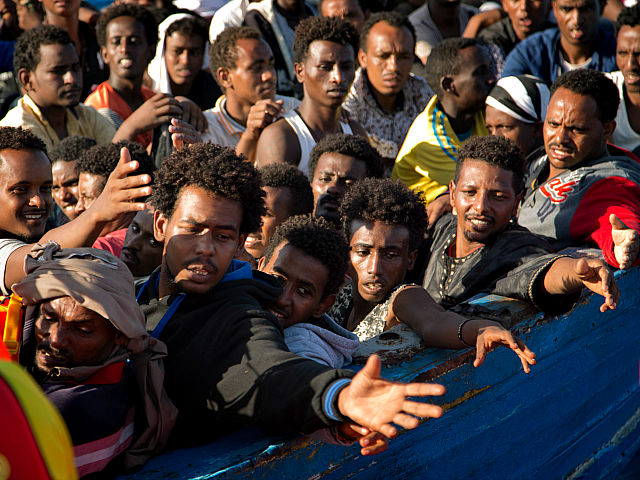With boat migrant arrivals in Italy already up significantly from 2016, European Union (EU) officials fear a deluge when Winter gives way to Spring.
2016 was a record-breaking year for arrivals in Italy, with numbers rising by a fifth to over 181,000. Numbers for January and February 2017 are already up on that year, from 9,000 to 13,500.
With Libya sliding back into internecine warfare, Reuters reports that the EU is not confident its controversial plans for a migration deal with the fractured North African state can curb the influx.
“It’s a real headache how to translate this into action,” a senior diplomatic source told the news agency. “And even if we manage, it won’t bring immediate results in terms of migration.”
“The numbers are already significantly higher than last year,” added another diplomat. “There is growing concern. It just looks like it’ll happen all over again.”
Currently, the EU is doing little to deter illegal sea-crossings. Frontex, the European Border and Coast Guard Agency, operate search-and-rescue (SAR) missions a short distance from the Libyan coast. The agency admits these missions are encouraging people-smugglers and increasing drownings by “unintentionally [helping] criminals achieve their objectives at minimum cost, strengthen their business model by increasing the chances of success”.
It will not countenance changing its policies, however, as they “stem from European values”.
Vessels operated by pro-migration NGOs have also been accused of acting “like taxis” for migrants by Frontex chief Fabrice Leggeri. NGOs meet unseaworthy boats just outside Libya’s territorial waters, take on their passengers, and bring them to European ports rather than safe harbours in nearby Tunisia.

Source: GEFIRA
Australia adopted a different approach during its own migrant crisis, which reached a peak of 403 boats and 25,173 migrants in 2012-13 before former prime minister Tony Abbott launched Operation Sovereign Borders.
This military-led mission sees smuggler boats intercepted at sea and either turned back or escorted to a third country, with asylum applications completed at offshore processing centres. The government considers the policy a success, and it has been over 900 days since the last boat reached Australia successfully.
Abbott has advised EU leaders that “Effective border protection” of this sort “is not for the squeamish, but it is absolutely necessary to save lives and to preserve nations. The truly compassionate thing to do is: stop the boats and stop the deaths.”
However, proposals backed by Austria and Hungary to introduce Australian-style offshore processing have been blocked by the Merkel administration in Germany.

COMMENTS
Please let us know if you're having issues with commenting.